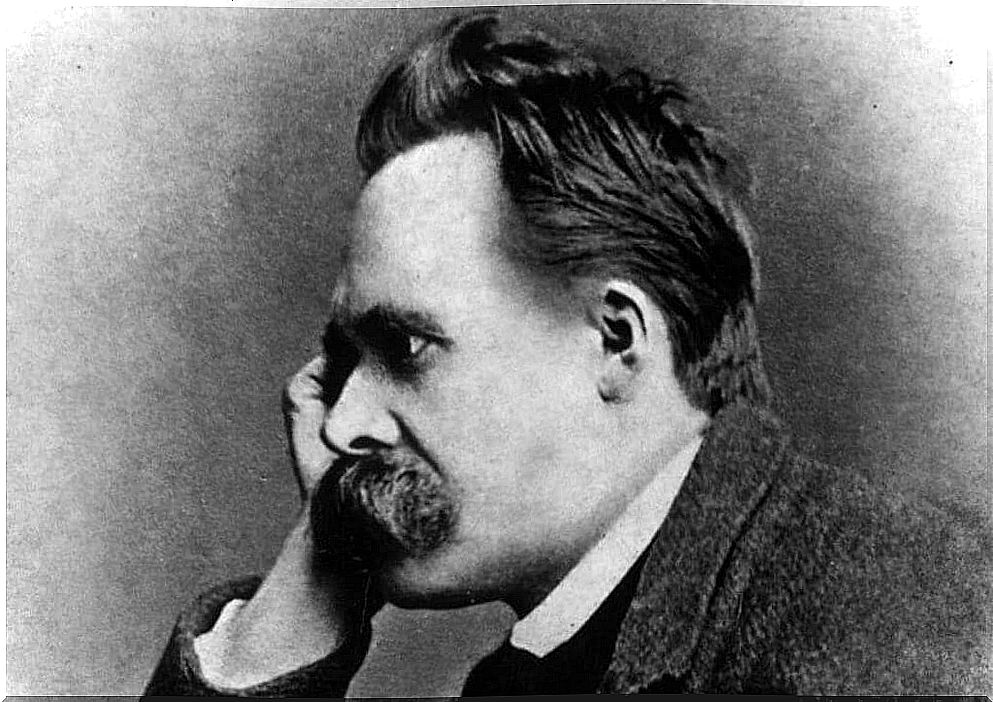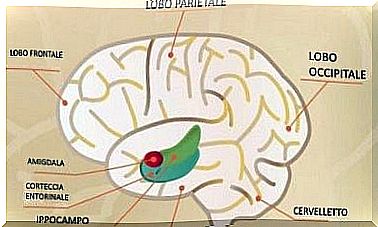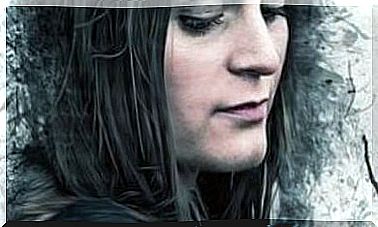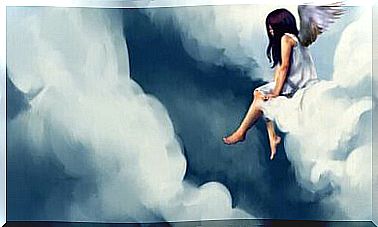Why Did Nietzsche Think Man Was A Sick Animal?

The thought of Nietzsche (1844-1990) was perhaps one of the most revolutionized, interpreted and manipulated throughout history. For many, God died with him and a new way of seeing and understanding the world was born. A way that tries to redeem thought and man from the self-imposed yoke, as a sophisticated intent to escape his greatest fears. The phobia of life, of himself and of his freedom.
For Nietzsche, the origin of many evils was to be found in that illustrious and partly democratic Greece , in which mythos is left aside to go on to venerate the logos. For a reason that made us insufficient, limited and stunned beings, like the shadows we saw in caves. Nietzsche distrusts modernity and begins to think that resentment for life is hidden behind this realization, towards what happens to us and we don’t like it.
The origin of the disease
(… and of the tragedy)
In Greece, he lost Dionysus (life) and Apollo won (reason). In this way, we remain hypnotized by a perfection that we project outside, and which will always remain outside because of the way we articulate it: distant, because it is we who situate ourselves in this way, distant from our nature. Our condemnation is at the same time our destiny: to transcend symbology and pass to the material form. The only way to reverse this sentence: death.

A pain whose reward is heaven. A speech that fit perfectly into the difficult context that saw the population exhausted by hunger, plague and thirst for hope. Suffer now, because then you will be rewarded. Obviously only if you have suffered enough.
This vision also presupposes a moral condemnation of man, because the most heroic deeds can never be his work. Perhaps that is why phrases representative of the acceptance of condemnations, such as “not all evils come to harm”, have become popular. In fact, this was the justification that many have used to explain how it is possible that a God who can do everything and moved only by his infinite goodness allows the misfortunes that occur. It’s curious, don’t you think?
We condemn ourselves to slavery
Returning to the fulcrum of Nietzsche’s thought, these are the premises that led to the creation of a scale of values more relevant to our faith than to our knowledge. Anyway, we are intelligent beings, and the Middle Ages, or dark ages, could not last forever …
In the meantime, science has begun to be built, the best viable solution to us to distance ourselves from the sensible world. Science, in this sense, was nothing more than the perfect means, according to Nietzsche, generated by man to create a hole in the cave and spy out. Our hope in establishing it as a paradigm was to understand determinism, the destiny that in some way was already written for everyone. An algorithm in which everything fits perfectly: exactly the same as those used by companies to try to predict what the customer’s next purchase will be.
Nietzsche approaches this model of thought with nihilism, which is based on the philosophy of the hammer. It is the destructive part of his philosophy, in which he attacks traditional knowledge and its manifestations, Western culture and the areas in which it was reflected.
Nihilistic pessimism and the superman
In his nihilism, Nietzsche explains to us why he thinks he considers man a sick animal and why what happened in Greece presupposed the birth of tragedy for us. His answer represents a Copernican revolution, comparable to what happened with the Enlightenment and anthropocentrism, but with a very distinct meaning and sense. Unlike the Enlightenment, he did not think that science would save us, but that it was a substitute for religion, but more intelligent and vital in some respects.
A religion that continued to be proof of our resentment of life; and, therefore, of our illness and the repression of our vital instincts.
Another manifestation of modern disease, in addition to religion and science (represented by Nietzsche above all by mathematics) is language. We try to reduce life in numbers, as well as in concepts. Language is therefore a fiction, a collective tool through which to find the truth. A truth that we are committed to making classifiable, objectivable, reducible to concepts, absolute… but is the world we live in really like this?
Including the disease, what is the solution for Nietzsche? Begin to overturn values and leave room for the birth of the superman, the one who will try to live a life worthy to the point of wanting to live it again in the same way (eternal return). This is the vital part of Nietzsche’s philosophy, his way of transcending suspicion and thus embracing life.









